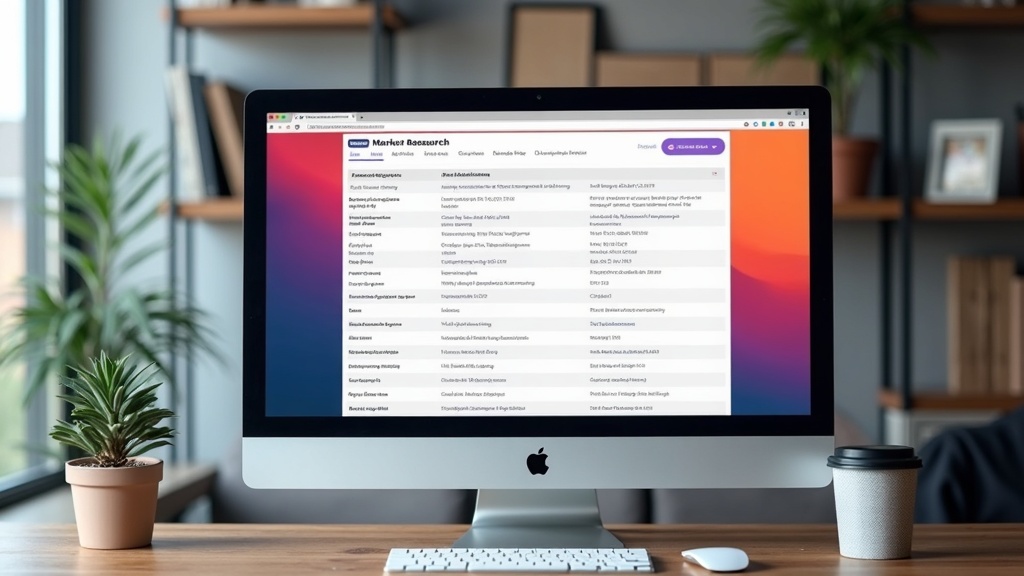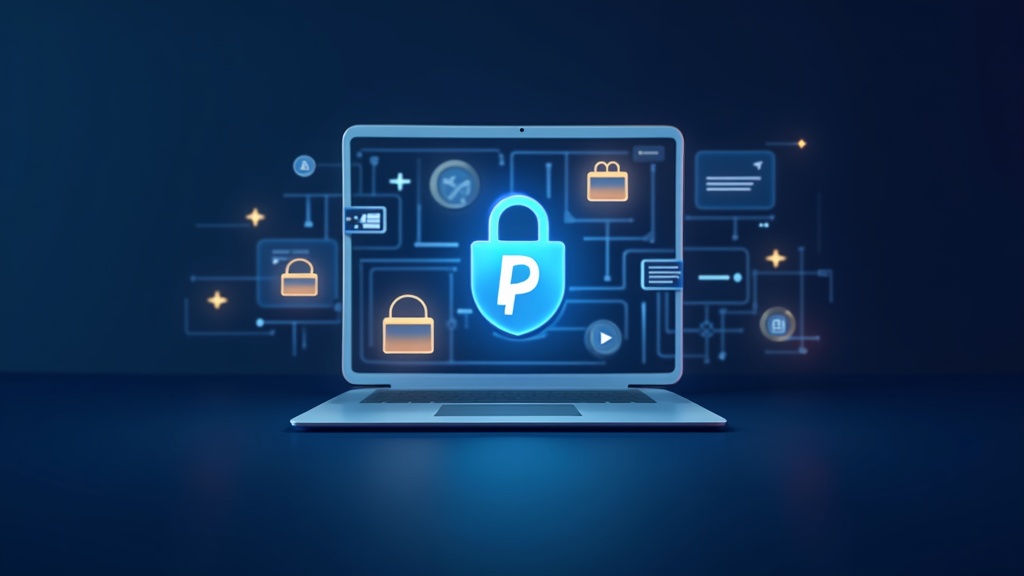UPDATE Oct 21, 2025
We’re currently building a free membership site designed to give you step-by-step, bite-sized lessons that make it easy to understand focus groups, the earning potential, and how to apply for each company with clear, practical guidance.
We’re offering it completely free — and we expect to have it live within the next 30 days.
Editor’s Note
This is a comprehensive guide that covers everything you need to know about finding, applying, and getting selected for paid focus groups. Since qualifying for these opportunities can be a bit of an art, we’ve made this article longer than usual to ensure every step is covered in detail. From spotting legitimate research firms, to completing screeners the right way, to communicating with recruiters and preparing for your session—we’ve laid it all out so you can approach the process with confidence.
Getting a focus group job can be a great way to earn money while sharing opinions on products and services. Over the years, I have participated in dozens of focus groups, and I know firsthand how rewarding these opportunities can be. I’m going to share a step-by-step guide based on my own experience and research to help you find, secure, and succeed in these roles. This guide covers everything you need to know so you can start earning from focus group participation—even if you are new to this world.
So, let’s get into the practical steps and important tips you need for landing a focus group job and making it a steady source of side income.
What Is a Focus Group Job?
A focus group job typically means getting paid to participate in a discussion or activity organized by market research firms. Companies use these groups to collect feedback on products, advertisements, or services. Sessions can be held online or in person, and each group usually has a specific target audience based on age, habits, medical conditions, occupation, or lifestyle.
From my experience, you could be asked to test new snacks, discuss your favorite streaming platforms, or even review software tools before they hit the market. The pay varies, but I’ve seen rates from $50 for an hour up to $500 for specialized groups. Many people fit focus groups around their work and studies, so it’s a flexible side hustle you can shape to your schedule.
How to Find a Focus Group
When I first started searching for focus group jobs, I had no idea where to look. It turns out that the key is knowing where reputable opportunities list their studies and understanding how to avoid scams.
Best Places to Find Focus Group Jobs
- Market Research Firms: Big names like Schlesinger Group, Focus Pointe Global, Fieldwork, and L&E Research are industry leaders. Their websites have sign-up pages for participants, and I recommend registering your interest directly with them.
- Online Panels: These are platforms you can join from anywhere. Some I’ve tried and can recommend include User Interviews, Respondent.io, and Probe Market Research. These sites post current focus group opportunities, and after signing up, you’ll receive regular updates that match your profile.
- Job Boards: General job boards like Indeed or Craigslist sometimes list local or national focus group roles. I’ve personally found legit opportunities here, though it’s important to be cautious (more on that below).
- Specialty Platforms: Sites like OneGoodGig.com specialize in listing only paid group studies.
If you prefer inperson groups, try searching for “market research companies near me” or “focus group facilities in [your city],” as there are typically regional firms that might not be as visible online.
Spotting Scams vs. Legitimate Opportunities
This is really important. Unfortunately, scammers take advantage of people searching for focus group jobs by offering fake studies that ask for an upfront fee or personal financial details. Real focus group jobs never charge you to join, and you should only ever provide basic contact information when signing up.
I always check a company’s reputation by searching for reviews on TrustPilot, Reddit, or the Better Business Bureau. If you receive invitations to join a group but are asked to send money, enter credit card details, or cash a check in advance, walk away. These are red flags.
Why Signing Up for Multiple Panels Helps
No single company will have enough focus group openings to keep your calendar full. I sign up with at least five different research firms and a few online panels to maximize my chances. Each company targets different demographics, industries, and locations, so joining several expands your options. Over time, your name goes into more databases, so you’ll get more frequent invitations as your profile matches new studies.
How to Apply and Get Selected
After you create accounts on various platforms, you need to pass a “screener”, a short survey that determines whether you qualify for a specific focus group. This stage is where most people get weeded out, so it pays to fill out screeners carefully.
Completing Screeners Honestly and Thoughtfully
Think of screeners as mini interviews. Always answer truthfully, but take a moment to consider your responses. For example, if a question asks about your shopping habits or product preferences, I make sure I read every word and choose answers that truly match my behavior. Recruiters look for consistent answers and may disqualify people for contradictory or rushed responses.
Some screeners are very detailed. You may even be asked to list what car you drive, your job duties, or how you handle specific tasks at work. There’s no single “right answer”, but recruiters are usually looking for a mix of people who reflect their target audience.
Highlighting Your Demographics and Habits
If you want more chances, make sure your screening profiles on each site are complete and up to date. I update mine every few months. Be specific about your occupation, hobbies, and household status. For example, mentioning that you’re a parent, a pet owner, or work in healthcare can open doors to many specialized groups. Studies often require participants who meet particular life stages or interests, so sharing these details boosts your chances.
Understanding FirstCome, FirstServed Openings
Many focus group seats fill up quickly. When I get an email about a new opportunity, I respond within minutes if I’m interested. Fast responses really do matter since recruiters may close the application after filling their quota. Some panels give priority to people who actively respond to emails or log in often, so keeping an eye out for your inbox pays off.
How to Talk to the Recruiter
Once you pass the screener, a recruiter usually reaches out by phone or email. I’ve learned that how you handle these conversations can impact whether you are selected and whether you get invited to future groups.
Responding Quickly and Politely
Replying quickly to calls or emails helps keep you in the running. I’m always polite, thank them for the opportunity, and confirm my availability clearly. If you’re busy during the scheduled time, let them know right away. They appreciate honesty, and it also keeps you in mind for future studies.
The Right Questions to Ask
Don’t be shy about getting the details you need. Here are the questions I usually ask before confirming:
- What is the pay rate and how is it delivered (check, gift card, PayPal, etc.)?
- How long is the session, and what are the precise start and end times?
- Is there any preparation or prework required?
- Will the session be in person or remote? If remote, which platform will be used (e.g., Zoom, Teams)?
- Are there any restrictions or special requirements (NDAs, proof of identity, special technology)?
Getting clear answers helps me decide whether to participate and makes sure I know what I need to do to get paid after the session.
Building LongTerm Relationships
Recruiters keep lists of participants who are reliable and thoughtful. Being punctual, prepared, and polite goes a long way. I often send a quick thankyou note after a session, which has led to extra invitations. Some firms even contact me directly when a new group is forming that fits my profile.
How to Prepare for the Focus Group
Whether the session is online or in person, a little preparation improves your experience and helps you leave a positive impression. Many times, companies will send out briefings or pregroup surveys ahead of time, and how you handle these makes a difference.
Reviewing the Topic or Product
If you get information about the session topic, product, or company ahead of time, spend a few minutes reading up. If it’s a product you’ll be discussing, learn the basic facts. If it’s a concept or service, review any provided documentation or prompts. I often write down a few notes or questions so I can contribute meaningfully during the session.
Getting Technology Ready (for Virtual Groups)
For virtual sessions, reliable technology is super important. Before each session, I test my computer, microphone, camera, and the specific video platform that will be used. If it’s Zoom or Teams, I run a test meeting. I check for privacy issues, like muting background noise, adjusting the lighting, and having a neutral background. Poor audio or video can lead to disqualification or missed payments, so this quick check matters.
Arriving On Time and Being Involved
Inperson sessions may require you to arrive early for registration. I always aim to be at the location 10-15 minutes before the scheduled start. For virtual groups, I log on at least 10 minutes in advance to work through any technical issues. During the session, being involved, listening, participating, and following instructions, makes a good impression on the moderator and other attendees.
Maximizing the Experience
Focus group participation is more than just showing up. It’s about contributing meaningfully and representing your views honestly while staying focused on the discussion.
Sharing Clear and Thoughtful Responses
The best sessions I’ve attended are those where everyone contributes openly. I make it a point to provide clear, thoughtful answers. Recruiters and moderators remember people who offer detailed insight. This increases your chances for repeat invitations.
Staying Honest and OnTopic
Authenticity is key. I’ve seen moderators pause or even drop participants who try to give answers they think are “correct” rather than truthful. Stay on topic, answer what is asked, and do not drift into unrelated stories. This creates a smooth session and keeps things enjoyable for everyone.
Keeping in Touch for Future Studies
If I really enjoy working with a particular research firm or recruiter, I follow up every few months to update my information or express interest in new studies. This process has helped me get more frequent invitations and sometimes first dibs on higherpaying or specialized groups. Building a friendly, professional relationship makes you a goto participant in their network.
Platforms and Resources: Where to Register
With hundreds of companies and platforms offering focus group opportunities, choosing the right panels can make a huge difference. Here are some triedandtrue places where I’ve consistently found paying studies.
- User Interviews: This platform posts many digital and inperson groups for all kinds of participants. Payments range from $40 to $400 or more, depending on the group’s length and target audience. Signing up is free and straightforward.
- Respondent.io: Respondent specializes in niche professional and consumer groups. They pay via PayPal, and I appreciate the transparency. You can view all requirements, session times, and pay before applying.
- FocusGroup.com: This site lists a wide range of studies, both remote and local. Most sessions pay well, and the eligibility criteria are clearly stated.
- L&E Research: With both inperson and online groups, this firm offers a diverse range of opportunities. I find their system userfriendly and payments arrive quickly after sessions.
- FindFocusGroups.com: This aggregator lists hundreds of groups from various research companies. You can browse by location or topic and set up email alerts for new postings in your area.
Try to mix wellestablished national panels with smaller local firms in your city or state. Smaller firms may have fewer participants to choose from, which can increase your selection odds.
How Focus Group Payment Works
The payment process can differ by company and type of session. I always ask the recruiter about payment details before saying yes to a group. Most focus groups pay within days by PayPal, check, or digital gift card. Some online panels offer payment through their own reward system, which can be converted to cash or gift cards.
If you haven’t received payment within the expected window, reach out to the company’s support. I keep records of every group I participate in, including session date, recruiter name, and promised payment. This makes it easier to follow up if anything gets delayed.
Taxes and Focus Group Earnings
If you earn over a certain amount in a year (usually $600 or more from one company), you may receive a 1099 tax form for U.S. income. Keeping track of your earnings is important. I log each payment to stay organized for tax time, though most participants will not meet the IRS threshold unless focusing on this income stream fulltime.
Types of Focus Groups: What to Expect
Based on my experience, focus groups come in a few main formats. Knowing what to expect can help you prepare and decide which opportunities to accept.
InPerson Focus Groups
These usually happen at dedicated research facilities, hotels, or conference centers. Sessions last from one to three hours and may ask you to test products, review ads, or simply give feedback on experiences. Most inperson groups pay a bit more to compensate for travel costs and your time on site.
Remote or Online Focus Groups
I’ve participated in dozens of remote groups using Zoom, Teams, or custom tools. These sessions feel similar to a video conference call and usually last 45-120 minutes. Some may require webcam, while others allow voice participation only. These are flexible and can fit around your schedule easily.
InHome Product Tests
Sometimes, researchers send products for you to use at home and then share your experience. I’ve been sent everything from cookies to vacuum cleaners. You typically get to keep the product and are paid for the followup feedback session.
Online Communities or Bulletin Boards
These groups take place over several days. You log into a secure platform and answer questions or post feedback regularly. These studies suit people who prefer not to commit to a single long session and enjoy writing out their responses.
My Experience: A Week in the Life of a Focus Group Participant
To show you how practical this can be, here’s how a week in focus groups looked for me last month:
On Monday, I completed a 90minute online group on video streaming services and earned a $125 digital Visa card. On Wednesday, I joined an hourlong session about new mobile apps and received $75 via PayPal. Friday capped the week with an inperson focus group with a local beverage company, which paid $150 cash after two hours in their office.
This schedule was typical for me during busy months, and none of the groups required advance experience. I managed all of this alongside my regular job. With a good game plan and time management, focus group jobs became a regular and reliable side hustle for me.
Common Focus Group Questions and Tips
- How old do you need to be? Most groups require participants to be at least 18, though there are sometimes studies for teens with parental consent.
- Do you need any experience? No previous focus group experience is needed. Most companies want regular consumers or professionals who match their criteria.
- How often can you participate? Many firms limit you to one or two sessions per month, especially if a client is running similar studies, but joining multiple panels increases your monthly chances.
- Is there a dress code? For inperson groups, I wear neat, casual clothes. For remote groups, businesscasual is usually just right. The goal is to look presentable but comfortable.
- Can you bring a friend? Unless specified, focus groups are for registered participants only. If you know someone interested, share your referral link. Many platforms offer bonuses for new signups.
Focusing on the Right Studies: Choosing Well
With limited time, I pick focus groups that pay fairly for the time spent. I avoid groups that promise “points” with low dollar value returns or ones that take more than two hours for less than $75. I also prioritize companies that have transparent payout histories and communicate well. This helps me make the most of my time spent participating and increases my enjoyment with each session.
Your StepbyStep Roadmap to Getting a Focus Group Job
- Sign up for several research panels and local market research firms.
- Always complete your full profile and keep it up to date with new details about your work, lifestyle, or interests.
- Respond to screener surveys quickly, thoughtfully, and honestly. Make sure your answers are consistent across the board.
- Be prompt and courteous with recruiters, ask practical questions, and confirm the session details and payment method.
- Prepare for the session by reviewing any materials, testing your tech, and setting aside a distractionfree spot if remote.
- Show up early, be involved, and participate actively in all group tasks and discussions.
- Follow up with a thank you or confirmation for payment, and keep in touch with recruiters for future invitations.
Focus group jobs can turn into a consistent side income with the right game plan. By following these steps and sharing your honest opinions, you’ll find yourself getting more invitations and building steady cash flow from a flexible, interesting source.
If You’re Ready to Get Started
I’ve found that jumping in is the best way to learn what works best for your schedule and interests. I recommend creating free profiles with the platforms mentioned above, checking your email daily for screener invites, and saying yes to your first group. After a few sessions, you’ll get comfortable with the process and develop your own approach to maximizing your chances and earnings.
One last tip: always keep an open mind. Even groups on unfamiliar topics can be fun and rewarding. I’ve learned about dozens of industries, sampled prototypes I’ve never seen in stores, and even helped shape products that are now widely used. For me, the variety and experience make every group unique and enjoyable.
If you have questions about platforms, how to spot a scam, or want more specific recommendations for your city or niche, feel free to drop a comment below or reach out. We are happy to help you get started. You can contact us via email at onegoodgig – gmail.
